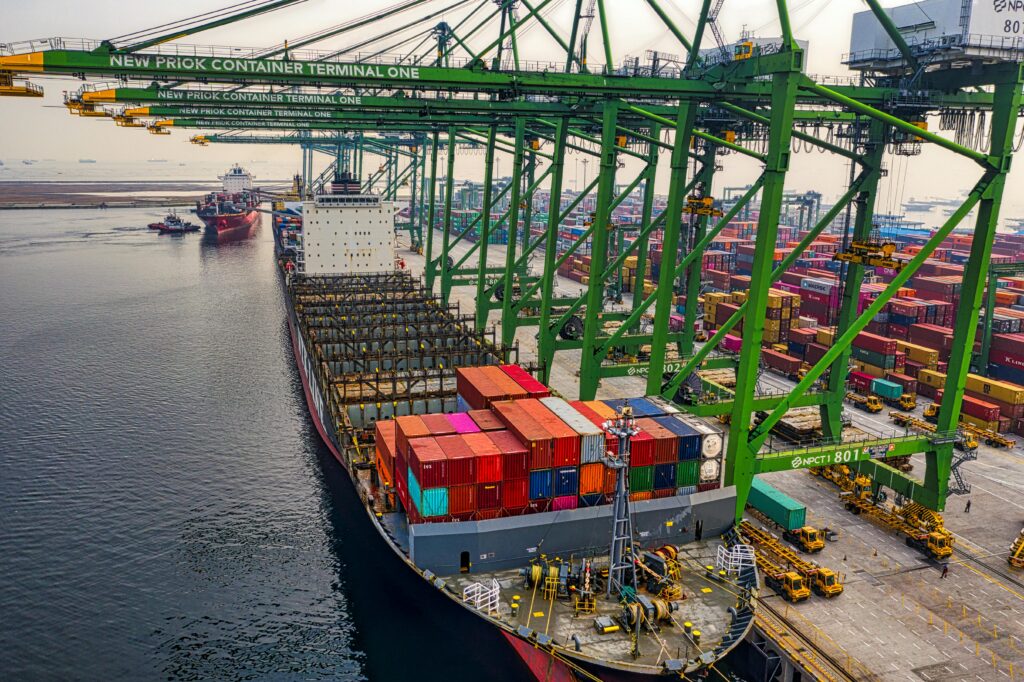Lean Logistics adapts the well-known Lean Manufacturing mindset to material and information flows beyond the factory gate. By seeking continuous elimination of non-value-adding activities across transport, warehousing and order management, Lean Logistics has become a cornerstone of competitive freight forwarding, especially in Europe’s tightly regulated, sustainability-driven market.

Core Principles of Lean Logistics
Lean Logistics builds on several mutually reinforcing pillars:
- Systematic waste elimination. The classical “seven wastes” (transport, inventory, motion, waiting, over-production, over-processing, and defects) provide a clear checklist for identifying inefficiencies in freight networks, cross-dock hubs, and last-mile routes.
- Value-stream mapping and flow. End-to-end visualisation of consignments – from booking through consolidation, line-haul, deconsolidation and delivery – highlights bottlenecks and makes lead-time variability visible.
- Pull-based planning. Replenishment triggers are set by actual demand, enabling just-in-time collection and reducing idle inventory at terminals.
- Standard work and problem-solving. Simple, shared work standards allow teams to expose abnormalities quickly and run rapid-cycle improvements.
- Data-driven visibility. Modern WMS and TMS platforms underpin lean thinking by synchronising dock schedules, giving real-time load factors and supporting dynamic route optimisation – capabilities now considered prerequisites for emissions reporting.
Key Benefits for European Supply Chains
Lean projects typically translate into measurable economic and environmental gains:
- Cross-docking and transloading programmes, now widely adopted as warehouse costs stay elevated, trim inventory carrying charges that account for 12–16% of total supply-chain spend.
- Participants in the pan-European Lean & Green certification scheme enjoy verified carbon savings; the first star alone recognises a more than 20% CO₂ reduction per transported unit within five years.
- Gartner-benchmarked TMS roll-outs regularly cut annual transport cost by 15% and administrative cost by up to 30%, while simultaneously lowering fuel burn through better cube utilisation and fewer empty kilometres.
How Far Lean Logistics Has Progressed in Europe
Regulation and market scale have accelerated adoption:
- Europe’s freight-forwarding market generated USD 58.9 billion in 2023 and is forecast to rise at a 7% CAGR to 2030, giving forwarders the volume base to invest in lean tooling.
- More than 500 companies now follow the Lean & Green “five-star” roadmap, aligning with the European Climate Law’s 55% emissions-reduction target for 2030.
- A 2023 MIT-CSCMP survey found that 53 % of European firms have adopted net-zero goals, the highest regional share worldwide and a clear pull factor for lean, low-carbon logistics services.
- Market analysts value the cross-docking services segment at USD 250.9 billion in 2025, with Europe identified as its fastest-growing region thanks to e-commerce and grocery channels that reward same-day flow-through.
Practical Applications Among IFA Forwarders
CTS Group – the company has embedded automatic route optimisation, network distribution, and driver eco-training within its Benelux hub network. Independent audits confirmed a 30% relative CO₂ reduction, earning the company two Lean & Green stars in 2021 and positioning it for a third star in 2024; since 2020, all own-fleet shipments have been 100% climate-neutral through offsetting and HVO-100 biofuel.
Delamode Bulgaria Ltd – the forwarder’s corporate environmental statement outlines a multi-year carbon-reduction programme that combines efficiency processes, and back-loading strategies. In 2024, Delamode launched an e-CMR pilot, digitising consignment notes ahead of the EU eFTI mandate and cutting paper handling and error rates. Parallel investments in an “Evergreen” WMS and an advanced TMS ecosystem have given customers real-time visibility and enabled leaner order-fulfilment cycles.
Milšped transport i logistika d.o.o. – the company’s 2024 ESG report highlights a strategic shift from road to rail and other intermodal solutions, reducing greenhouse-gas intensity while boosting capacity. In April 2024, Milšped inaugurated a direct block-train service from Hebei (China) to Serbia, showcasing a lean, long-haul flow that bypasses congested EU gateways and shortens transit times for high-volume trade lanes.
These cases show how Lean Logistics, reinforced by European policy and customer demand, is moving beyond theory into daily forwarding operations – delivering faster cycles, lower cost, and credible climate performance without reliance on headline-grabbing brands outside the IFA network.
